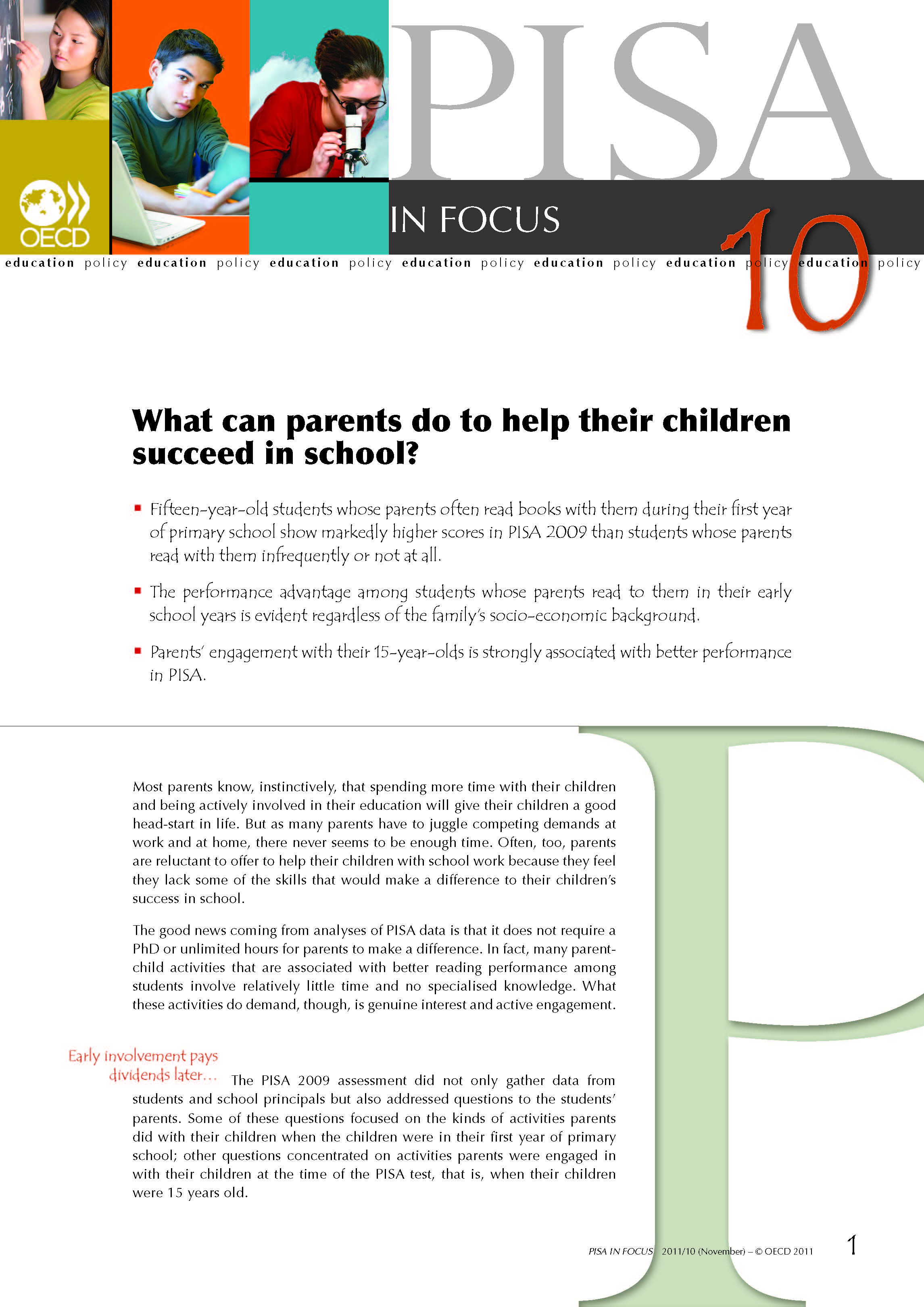 What can parents do to help their children
What can parents do to help their children
succeed in school?
• Fifteen-year-old students whose parents often read books with them during their first year
of primary school show markedly higher scores in PISA 2009 than students whose parents
read with them infrequently or not at all.
• The performance advantage among students whose parents read to them in their early
school years is evident regardless of the family’s socio-economic background.
• Parents’ engagement with their 15-year-olds is strongly associated with better performance
in PISA.
Most parents know, instinctively, that spending more time with their children
and being actively involved in their education will give their children a good
head-start in life. But as many parents have to juggle competing demands at
work and at home, there never seems to be enough time. Often, too, parents
are reluctant to offer to help their children with school work because they feel
they lack some of the skills that would make a difference to their children’s
success in school.
The good news coming from analyses of PISA data is that it does not require a
PhD or unlimited hours for parents to make a difference. In fact, many parentchild
activities that are associated with better reading performance among
students involve relatively little time and no specialised knowledge. What
these activities do demand, though, is genuine interest and active engagement.
The PISA 2009 assessment did not only gather data from
students and school principals but also addressed questions to the students’
parents. Some of these questions focused on the kinds of activities parents
did with their children when the children were in their first year of primary
school; other questions concentrated on activities parents were engaged in
with their children at the time of the PISA test, that is, when their children
were 15 years old.
Link to read the entire article
